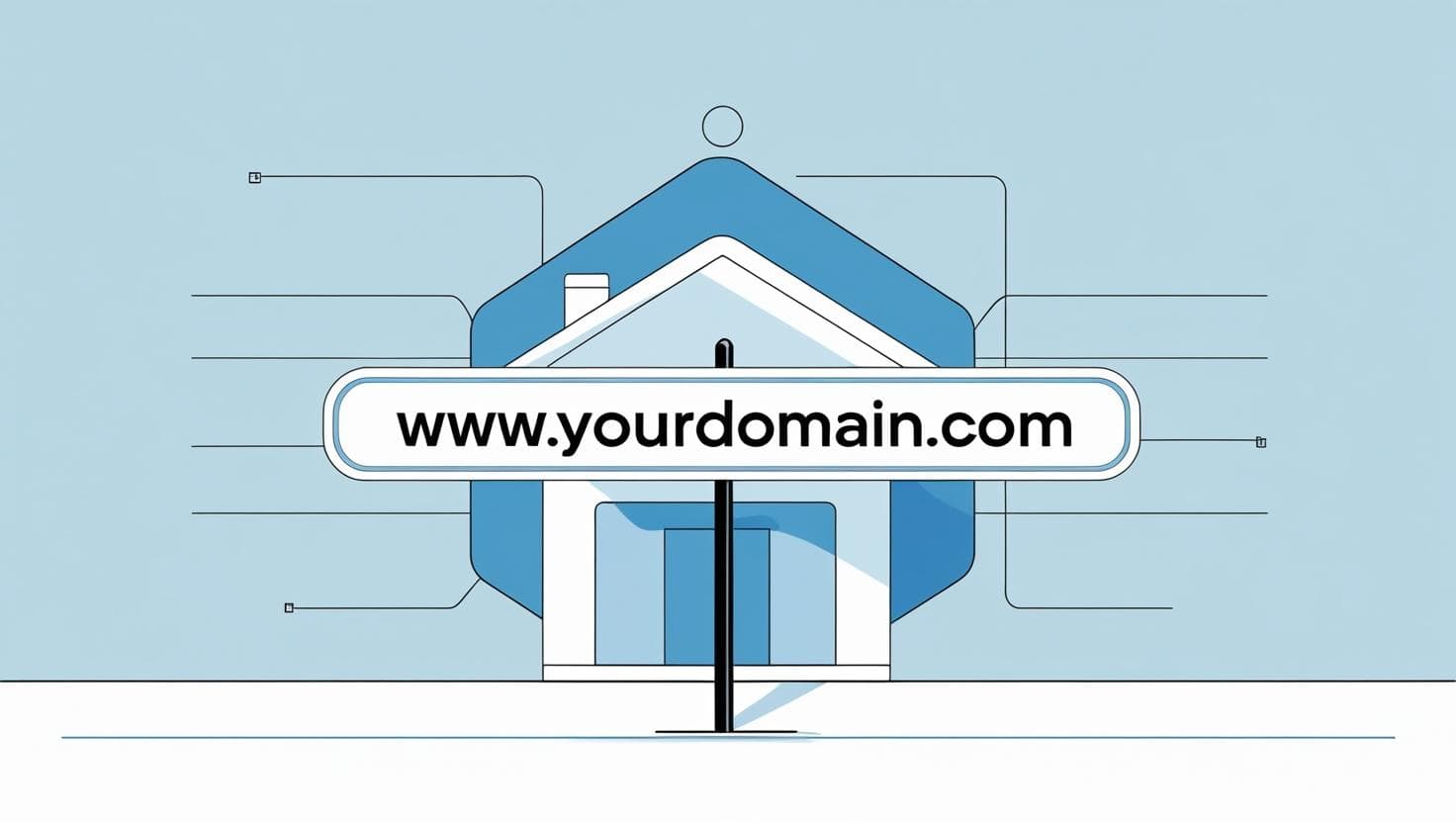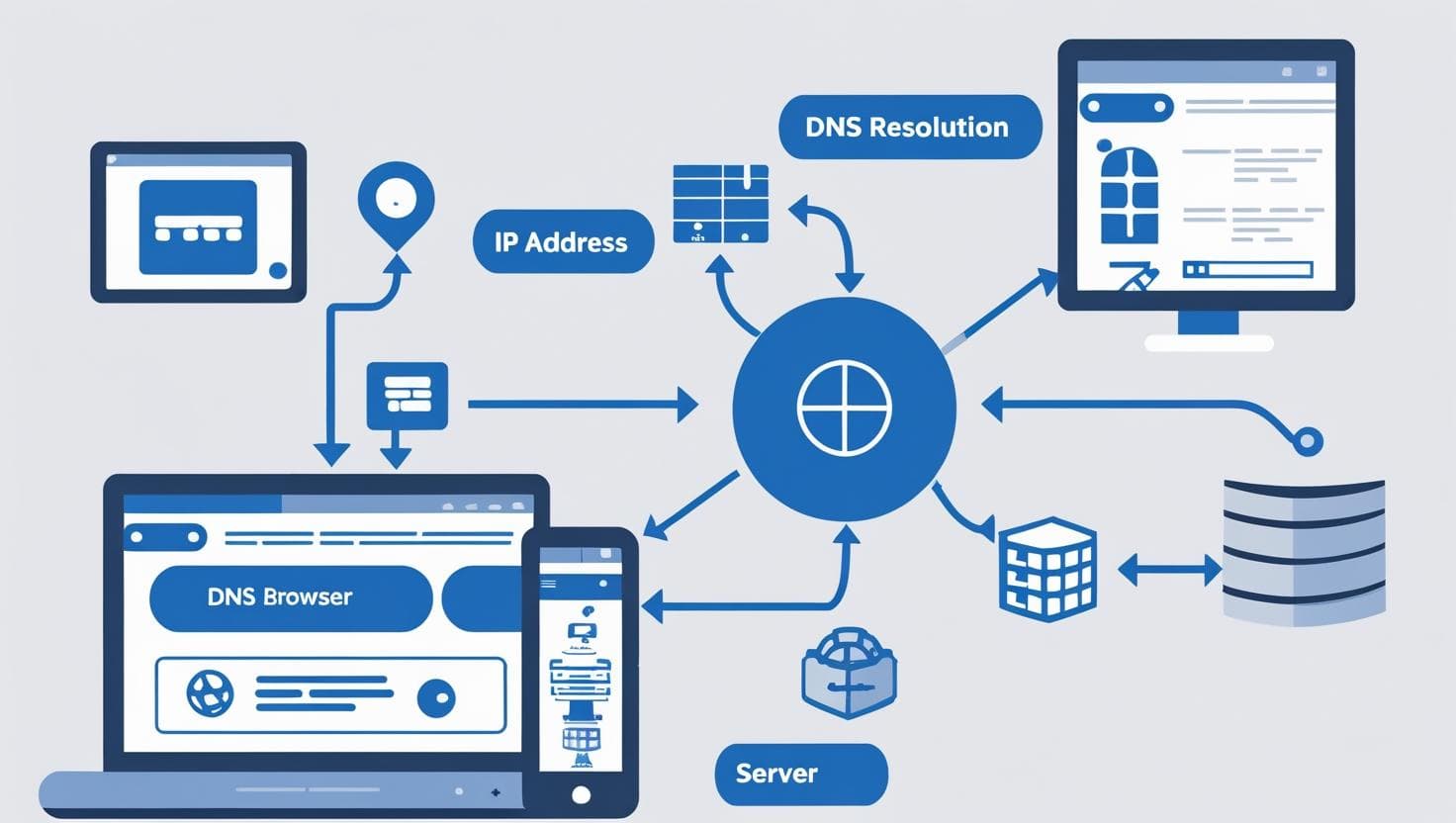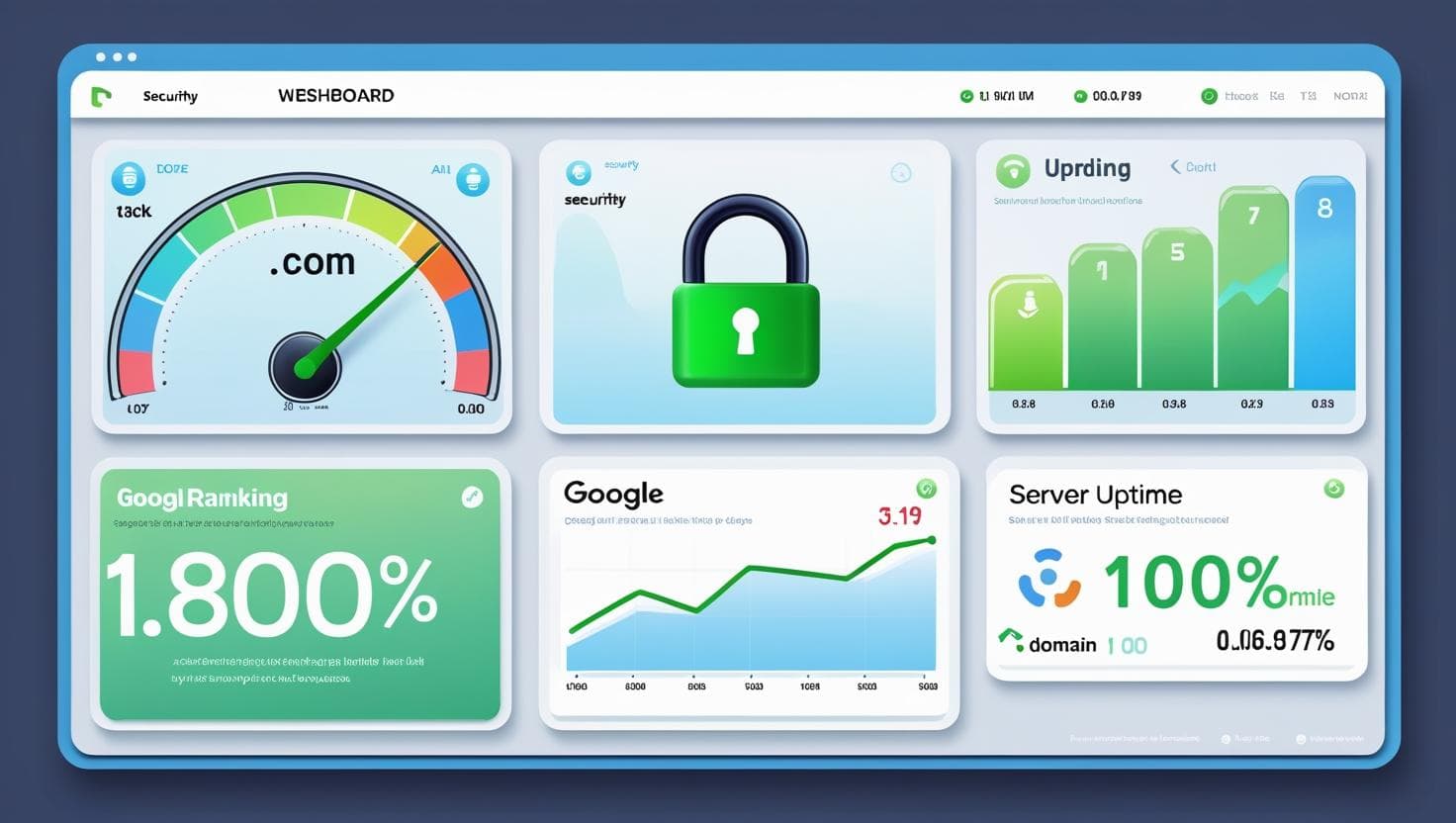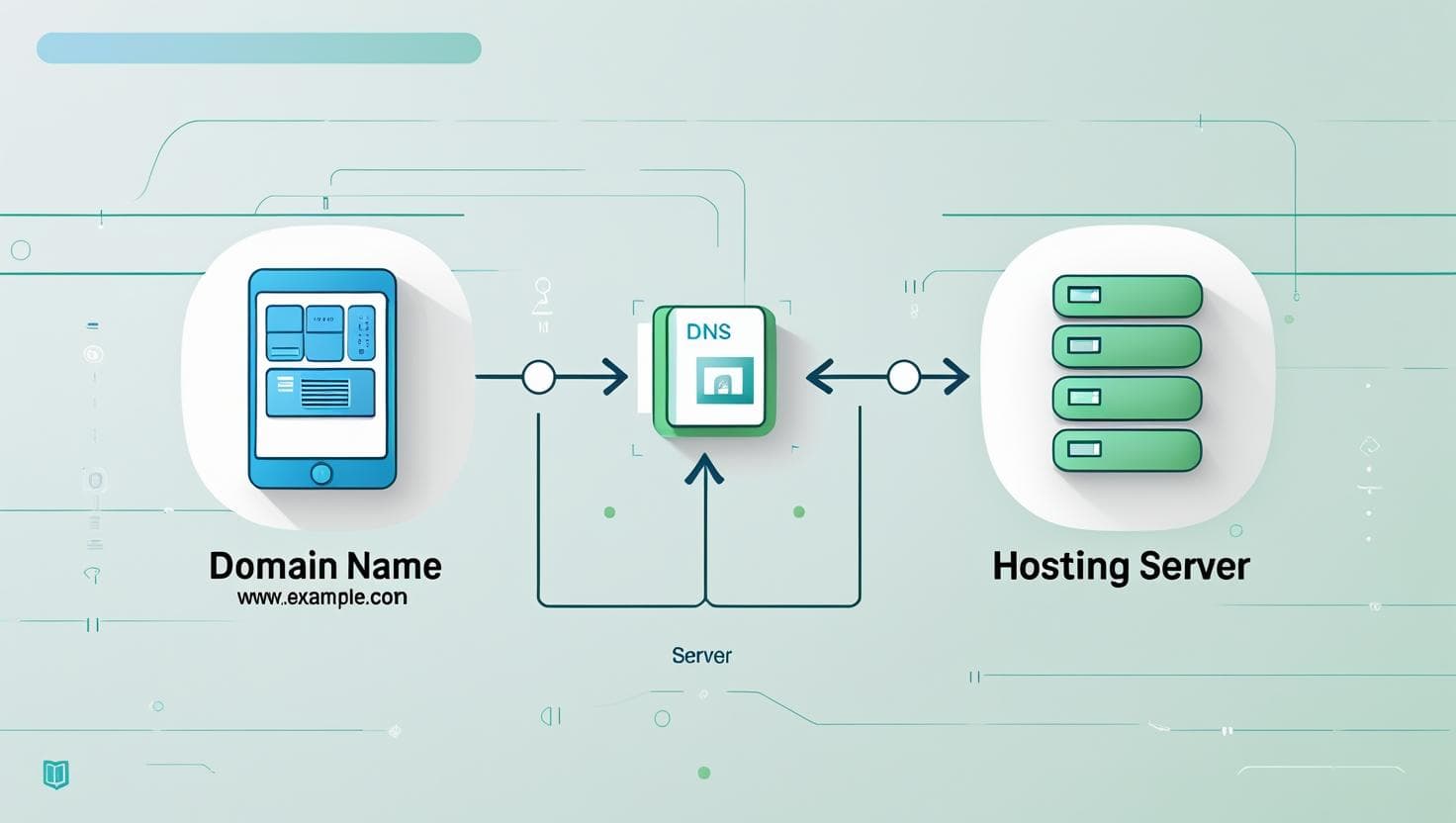How Domain and Hosting Work Together
A Complete Beginner’s Guide with SEO Tips for Fast Google Ranking (2025)
Introduction
If you’re planning to launch a website, you’ve likely heard the terms domain and hosting. But what do they mean? More importantly, how do they work together to make your website accessible to the world?
Understanding the relationship between domain names and web hosting is essential for every website owner, whether you're building a personal blog, an eCommerce store, or a business website. This in-depth guide will help you learn how domains and hosting complement each other—and how this affects your website's SEO, performance, and reliability.
What Is a Domain Name?
A domain name is your website’s address on the internet. It’s what people type into their browsers to visit your site—like www.yoursite.com.

Example:
If your website were a house, the domain name would be the street address.
- Easy-to-remember name that directs users to your site.
- Managed by domain registrars like GoDaddy, Namecheap, or Google Domains.
- Needs to be renewed annually or for multiple years.
- Top-level domains (TLDs) like .com, .net, .org, or country codes like .uk.
What Is Web Hosting?
Web hosting is a service that stores your website files and makes them accessible via the internet. It’s like renting space on a server where all your site’s code, content, images, and databases live.

Example:
If your website is a house, web hosting is the land where that house is built.
Types of Hosting:
- Shared Hosting: Affordable, suitable for beginners.
- VPS Hosting: Offers more control and resources.
- Cloud Hosting: Highly scalable, great for performance.
- Dedicated Hosting: Full server for large businesses.
How Do Domain and Hosting Work Together?
When someone types your domain into a browser:
- The browser uses DNS (Domain Name System) to find your hosting provider.
- The DNS connects the domain to the hosting server’s IP address.
- The server then delivers your website content to the visitor.
In short:
- The domain tells the browser where to go.
- The hosting provides what to show.

The Technical Connection: DNS, IP, and Nameservers
Behind the scenes, this is how it works:
- Your domain is registered with a registrar.
- Your hosting provider gives you nameservers (like ns1.host.com, ns2.host.com).
- You connect the domain to the hosting by updating the nameservers.
- DNS translates your domain (e.g., yourbrand.com) into the server's IP address (e.g., 123.456.789.10).
- Browser reaches the hosting and loads your site.

This connection is what makes your website LIVE on the internet.
SEO Importance of Proper Domain & Hosting Setup
Domain Impact on SEO:
- Brandable & Short: Easier to remember and search.
- TLD Matters: .com is still the most trusted.
- Keywords in Domain: Helps for niche targeting (e.g., bestvpnservice.com).
- Domain Age: Older domains often get more trust.
- SSL Certificate: Secure domains (HTTPS) are a ranking factor.

Hosting Impact on SEO:
- Page Speed: Hosting affects site load time—slower = lower rankings.
- Downtime: If your hosting goes offline often, Google penalizes.
- Server Location: Matters for geo-targeting (e.g., US visitors = US server).
- Security: Good hosting protects from malware, which affects SEO.
- CDN Integration: Hosting with CDN boosts speed globally.
Choosing the Right Domain and Hosting Pair
Domain Tips:
- Keep it under 15 characters.
- Avoid hyphens or numbers.
- Use a reputable registrar (GoDaddy, Namecheap, Google Domains).
- Consider long-term brandability over trends.
Hosting Tips:
- Use providers with 99.9% uptime guarantee.
- Go for SSD storage and LiteSpeed servers.
- Use cPanel or custom dashboard that’s easy to manage.
- Choose one with free SSL, backups, and malware protection.
Real-World Example: Domain + Hosting Setup
Suppose you buy myhealthblog.com from Namecheap and choose Hostinger for hosting:
- Hostinger gives you nameservers:
ns1.dns-parking.com,ns2.dns-parking.com - You go to Namecheap DNS panel and update the nameservers.
- Wait for propagation (up to 24 hours).
- Once done, your blog is live!

Importance of SSL and Domain-Hosting Integration
SSL (Secure Sockets Layer) is essential for website security. When your domain and hosting are properly connected, you can easily install an SSL certificate, enabling HTTPS on your site. This not only protects your visitors’ data but also boosts your SEO rankings.
- SSL Certificate: Encrypts data between user and server.
- HTTPS: Google gives ranking preference to HTTPS-enabled sites.
- Trust: Visitors feel safer seeing the padlock icon next to your URL.
Most hosting providers offer free SSL certificates via Let's Encrypt, making integration seamless.
Common Issues and How to Fix Them
Domain Not Pointing to Hosting
This happens if nameservers are not updated correctly or DNS propagation is incomplete. To fix:
- Double-check the nameservers provided by your hosting provider.
- Update the nameservers at your domain registrar's dashboard.
- Wait up to 24-48 hours for DNS propagation.
Website Shows “Coming Soon” Page
This usually means hosting is set up, but the website files are not uploaded yet. Upload your website files to the public_html or equivalent folder via FTP or hosting control panel.
SSL Errors After Setup
Commonly caused by incorrect SSL installation or mixed content issues. To resolve:
- Use hosting’s SSL installation tools.
- Ensure all website URLs use HTTPS.
- Clear browser cache and CDN caches if any.
FAQs (Frequently Asked Questions)
What happens if I don’t connect my domain to hosting?
Your domain will not show your website. Visitors will get an error or a placeholder page because the domain isn’t linked to any server storing your website.
Can I use domain and hosting from different providers?
Yes! It’s very common. You just need to update the domain’s nameservers to point to your hosting provider’s servers.
How long does DNS propagation take?
Typically, 24-48 hours, but often it’s faster within a few hours.
Does hosting location affect my website speed?
Yes. Hosting servers closer to your audience reduce latency and improve load times.
